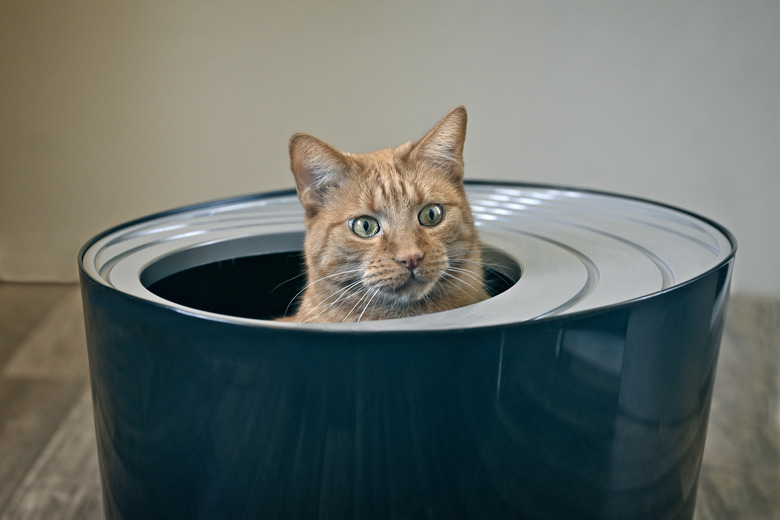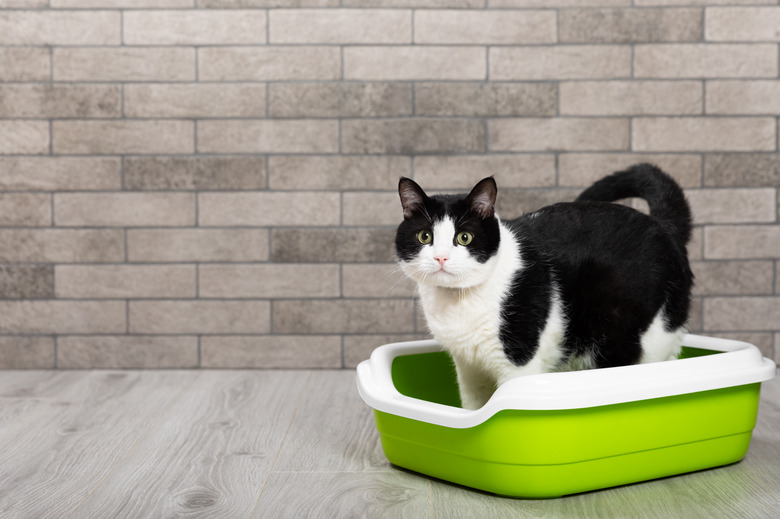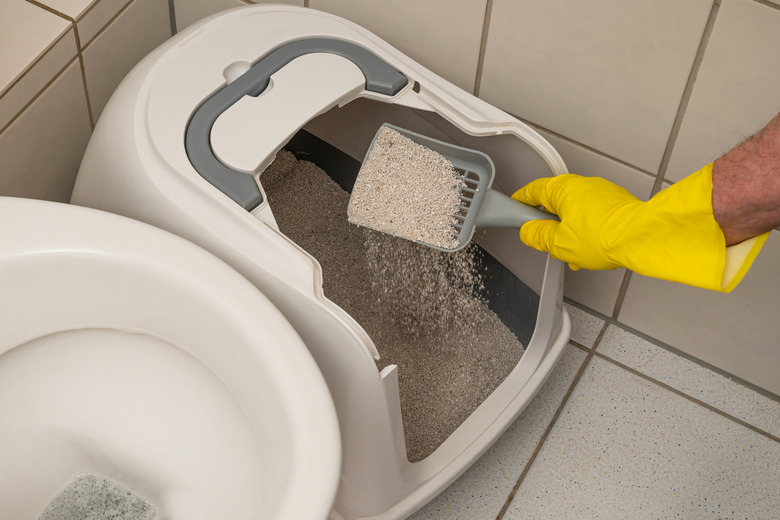Can I Pet Cats If I'm Pregnant, Or Should I Worry About Toxoplasmosis?
There are so many myths and lore out there about felines that it's hard to know what's true. Are they really signs of bad luck? Will they really eat your face off if you die in your home? One concern some people have is whether it's safe to have a cat in your home when you're pregnant. There's understandable cause for concern, but it's important to get your facts straight before you banish your furry friend to another part of the house for the better part of a year, or worse, surrender them to a shelter.
Can pregnant people pet cats?
Can pregnant people pet cats?
Absolutely! In fact, if you share your home and your life with a feline friend, you should be petting your cat all the time—not only does it strengthen the bond between you, but it also releases "happy hormones" like oxytocin when you show affection to your cat, according to a 2021 study published in PeerJ. Assuming you don't have allergies, friendly, healthy cats themselves are not at all unsafe to be around when you're pregnant or otherwise. So, why do so many people assume they are? What is it about cats and not, say, dogs or rabbits or horses, that could make them so potentially dangerous? Well, it all goes back to their poop.
What is toxoplasmosis?
What is toxoplasmosis?
Cat feces can be filled with a number of harmful things, including Giardia, worms, and a potentially dangerous parasite called Toxoplasma gondii, otherwise known as t. gondii, or toxoplasmosis. According to the CDC, toxoplasmosis is usually spread through food, like undercooked meat or raw meat and shellfish, and can also spread via infected cookware, cutlery, and water. The parasite can survive in meat, water, soil, and inside of an animal's body, especially cat bodies, which is where it stays alive for the longest amount of time.
This is actually a pretty common parasite and around 40 million people in the U.S. may be infected with it at any time. Most people just don't know it because their immune systems prevent symptoms from manifesting, and keep the parasite from causing serious illness. During pregnancy, however, the immune system is compromised and the risk of toxoplasmosis infection is higher, which is why many people worry that staying in touch with cats, who can be carriers of the parasite, is a bad idea.
Toxoplasmosis and pregnancy
Toxoplasmosis and pregnancy
Toxoplasmosis is very common, and there's no guarantee that an infected person will pass it along to their child. There is still a chance, however, and the side effects of toxoplasmosis infection for an unborn baby can be severe. Babies who contract toxoplasmosis are more likely to deliver prematurely and are at higher risk of birth defects, including brain damage, and disorders affecting the liver, eye, and spleen, as well as disabilities that can occur from those defects. Toxoplasmosis infection during early pregnancy is when side effects have the potential to be the most damaging, and while an unborn child can contract the parasite in the later stages of pregnancy, the symptoms will be less severe than in the first trimester.
How to stay safe
How to stay safe
If you are pregnant and have a cat in your home, don't worry! Contracting toxoplasmosis is actually tougher than it sounds, especially if you have good hygiene and regular cleaning routines in place. Staying safe as a pregnant person with a cat starts first at the source of the parasite—the litter box. Clean your cat's litter box every day by scooping and removing poop and urine clumps, tossing them in a bag, then tossing that bag in a bin outside of the home. It takes between one and five days for toxoplasmosis parasites to become infectious, so scooping poop right away is your best bet at staying infection-free. It's recommended to wear gloves, especially if you have a new cat in your home, and it's essential that you wash your hands well anytime you change cat litter.
Toxoplasmosis is easier to contract the further you are along in your pregnancy—people have a 15-20% chance of contracting the parasite in their first trimester, and that risk goes up with the second and third. If you're able to delegate the litter box responsibilities to someone else for at least the last two trimesters, you'll have even less to worry about. Self-cleaning cat litter boxes are another great way to stay safe from possible toxoplasmosis exposure during pregnancy, or anytime!
The bottom line
The bottom line
Pregnant people can pet healthy cats, but their feces should be handled with extra care during this delicate time due to possible toxoplasma contamination. Toxoplasmosis lives inside of cat bodies for longer than in any other host and can be found in cat poop. The best way to prevent toxoplasmosis contraction is to keep your cat's litter box clean—that means daily scooping, regular disinfecting, and immediate removal of feces from the home. If you're worried that you have been infected with toxoplasma, contact your healthcare provider for a blood test.



